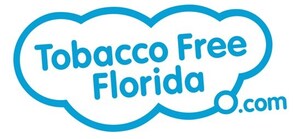TALLAHASSEE, Fla., July 3, 2019 /PRNewswire/ -- Effective July 1, a new voter-approved law takes effect under the Florida Clean Indoor Air Act (FCIAA) that bans vaping and the use of e-cigarettes in workplaces. In November 2018, Florida voters overwhelmingly approved Amendment 9 that was enacted by the legislative commission and signed by Gov. Ron DeSantis on April 26.
The long-term health effects of e-cigarette use, or vaping, are still unknown, but here is what we do know:
- E-cigarette aerosol – aka vapor – is NOT harmless "water vapor," as many mistakenly believe.1
- The aerosol that users breathe from an e-cigarette device and exhale can contain harmful and potentially harmful substances including cancer-causing chemicals and heavy metals such as nickel, tin and lead. 2
- Some of the ingredients in e-cigarette aerosol could be harmful to your lungs. For example, some e-cigarette flavorings may be safe to eat but not to inhale because the gut can process more substances than the lungs.3,4
- Bystanders exposed to e-cigarette aerosol can also absorb its nicotine.5
This addition to the FCIAA will not restrict use of e-cigarettes and vaping devices inside private residences, retail tobacco and vapor-generating electronic device shops, standalone bars or hotel rooms where smoking is allowed. The law as written also does not affect more restrictive local vapor ordinances.
The Florida Legislature first enacted the FCIAA in 1985 to protect people from the health hazards of secondhand smoke. In 2003, the Legislature passed a voter-approved amendment to prohibit smoking in workplaces that previously allowed smoking. Because of that amendment, Florida law prohibits smoking in most indoor public and private businesses, including restaurants. While there are exceptions, including standalone bars, the amendment makes it possible for many Floridians to go about their daily lives without being involuntarily exposed to secondhand smoke. For more information about the FCIAA, visit tobaccofreeflorida.com/FCIAA.
About Tobacco Free Florida
The Florida Department of Health's Tobacco Free Florida campaign is a statewide cessation and prevention campaign funded by Florida's tobacco settlement fund. Since the program began in 2007, more than 212,000 Floridians have successfully quit using one of Tobacco Free Florida's free tools and services. There are now approximately 451,000 fewer adult smokers in Florida than there was 10 years ago, and the state has saved $17.7 billion in health care costs. To learn more about Tobacco Free Florida's Quit Your Way services, visit www.tobaccofreeflorida.com or follow the campaign on Facebook at www.facebook.com/TobaccoFreeFlorida or on Twitter at www.twitter.com/tobaccofreefla.
1 Centers for Disease Control and Prevention (CDC). "Quick Facts on the Risks of E-cigarettes for Kids, Teens, and Young Adults." CDC Office on Smoking and Health, National Center for Chronic Disease Prevention and Health Promotion. 3 Dec 2018. www.cdc.gov/tobacco/basic_information/e-cigarettes/Quick-Facts-on-the-Risks-of-E-cigarettes-for-Kids-Teens-and-Young-Adults.html (Accessed 11 March 2019)
2 US Department of Health and Human Services. E-cigarette Use Among Youth and Young Adults: A Report of the Surgeon Genera. Atlanta, GA: US Department of Health and Human Services, CDC; 2016. Accessed July 27, 2018.
3 Centers for Disease Control and Prevention (CDC). "Quick Facts on the Risks of E-cigarettes for Kids, Teens, and Young Adults." CDC Office on Smoking and Health, National Center for Chronic Disease Prevention and Health Promotion. 3 Dec 2018. www.cdc.gov/tobacco/basic_information/e-cigarettes/Quick-Facts-on-the-Risks-of-E-cigarettes-for-Kids-Teens-and-Young-Adults.html (Accessed 11 March 2019)
4 U.S. Department of Health and Human Services. E-Cigarette Use Among Youth and Young Adults. A Report of the Surgeon General. Atlanta, GA: U.S. Department of Health and Human Services, Centers for Disease Control and Prevention, National Center for Chronic Disease Prevention and Health Promotion, Office on Smoking and Health, 2016.
5 Ballbé M, Martínez-Sánchez JM. Cigarettes vs. E-Cigarettes: Passive Exposure at Home Measured by Means of Airborne Marker and Biomarkers. Environmental Research 2014;135:76–80.
SOURCE Tobacco Free Florida

Related Links
WANT YOUR COMPANY'S NEWS FEATURED ON PRNEWSWIRE.COM?
Newsrooms &
Influencers
Digital Media
Outlets
Journalists
Opted In




Share this article